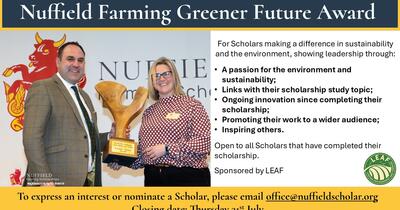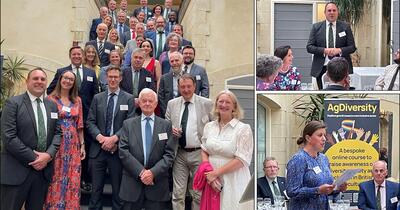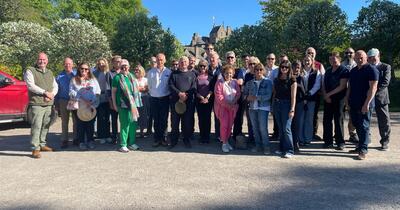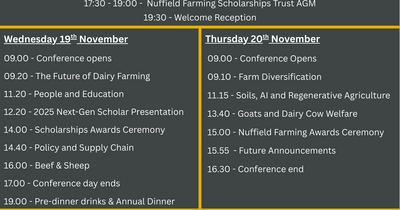The Nuffield GFP is an intensive six weeks of travel aimed at developing scholars understanding of global agriculture. It provides them with a once in a lifetime opportunity to meet with progressive businesses, organisations and government from across the world. This year four UK scholars took part in this fantastic programme, and they share the highlights of their GFP trips.
The Brazil GFP started in Florida, where we visited a variety of business types from beef producers to water melon growers and from conventional to organic systems. We also spent a lot of time with the extension service, learning about the important role they have advising farmers. After Florida we travelled to Mexico where we visited the International Maize and Wheat Improvement Centre (CIMMYT). It was humbling to hear about the work they are doing developing new varieties to sustainably increase productivity of these crops, helping to improve global food security.
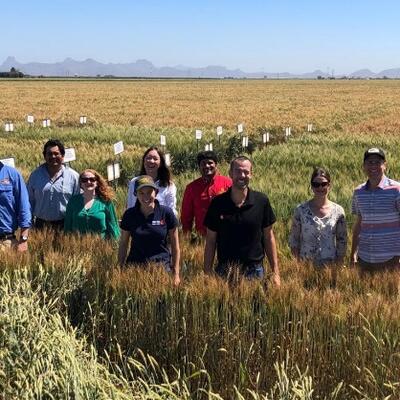
Sustainability was a consistent theme throughout my trip. Brazil was a real eye opener and I soon realised that I had huge misconceptions about the country. The farmers we met were very conscious of the impact their farming practices were having on the land. They were trying to improve soil quality through strict no till policies or using beef cattle as part of the crop rotation to help build soil organic matter. In such a short period of time Brazil has managed to develop into a world exporter in agricultural products and they still have huge potential for further development, if their infrastructure can be improved. The industry is full of young, enthusiastic people and I felt really inspired throughout my visit.
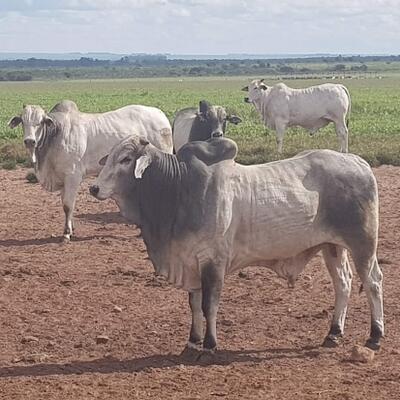
The last countries we visited were The Netherlands and New Zealand. In both countries we were lucky enough to meet with Nuffield Scholars. It seemed both countries were focusing on the added value rather than commodity markets which we had witnessed earlier in our trip. Whilst in The Netherlands we met with the CEO of a large micro herb producer who stated that in agriculture we learn how to simply produce, rather than to market and it is the marketing which creates value. By effectively marketing herbs to high end chefs across the globe, the business has grown and now produces a ¤36m turnover.
It would be impossible for me to write a summary of my GFP without mentioning the six fantastic scholars who I travelled with. They encouraged me to question my thinking and allowed me to see things from a different perspective.
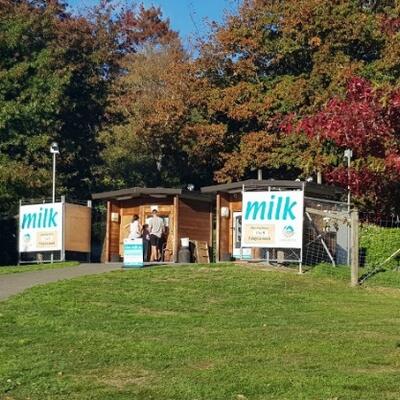
The Chile GFP commenced immediately after the 2019 CSC, held in Des Moines, Iowa. We travelled to Washington D.C., California, Argentina, Chile, Italy and finished the journey with a week in the UK. We met with some amazing people, witnessed some great farming practices (and some notso-great ones too, but these are sometimes as valuable!), as well as being able to step out of our daily lives and take time to reflect on how we could best use this experience to help with our family businesses.
We met with the US Undersecretary of Agriculture, at the USDA, who said that the US have a Google alert on Michael Gove, whenever he says ‘Chlorinated Chicken’! We visited the National Chicken Council, where we discovered that only 15% of US chickens go through a chlorine wash (the remainder go through a peracetic acid bath). We saw 110-thousand head of cattle in a single feedlot in California and ate some of the best smoked brisket I’ve ever tasted at a nearby gas station. We learnt about perennial crop production in California and how water scarcity is a major concern, as well as learning that to pollinate all these acres of almonds, walnuts, etc. requires the largest managed migration of bees in the world each year.
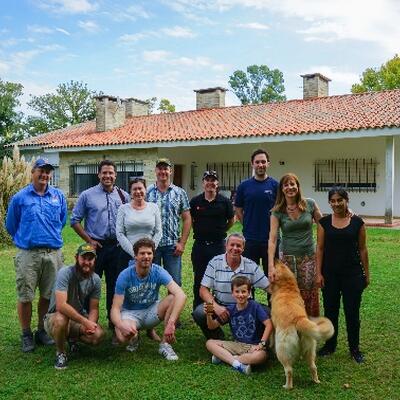
When we reached Argentina, we visited a 7,000-ha farm run by three sisters, with huge machinery. These were all GPS controlled and the farm had been zero-till since 1992, they move the tram lines slightly with each pass to manage soil compaction. We discussed all things ‘CREA’, which is a progressive solution to helping farmers overcome farming and non-farming issues through a community approach.
After a long flight to Italy, we learnt the art of coffee tasting at Lavazzo and witnessed the scale of a fully-automated coffee warehouse, built in the early 1990s, that houses 7000 tonnes of packaged coffee, equivalent to 25-days production. We ate Parma Ham after touring the prosciuttobred pig farm and associated processing facility. We began to understand the complexities and value of heritage and tradition with the slow food movement and we were told about the red flags to look out for when going to a Gelateria in Rome!
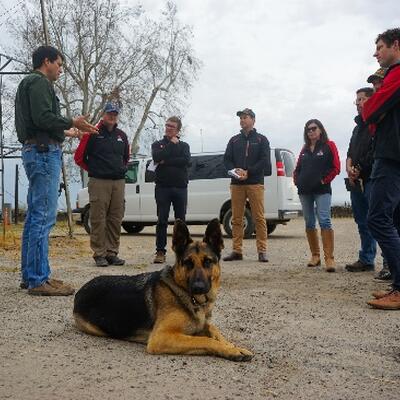
Meeting with Beeswax Dyson in the UK, we were astounded by the £550m investment over the past five years. Farming in the UK - compared to the Americas - seems held back by tradition, regulation (an observation by most of the group) and fear of losing something that had been in the family for generations. However, there was plenty of innovative practices stemming from the businesses we saw, such as the once-a-day mobile organic dairy near Basingstoke and a highly automated cider facility at Thatcher’s Cider.
Sixty typed pages of notes later and it’s difficult to distill the truly immense amount of insight and experience that have been gained through such a relatively short period of time. Our group was in awe of the warmth and welcome that was shown to us wherever we went; if only we could do it all again!
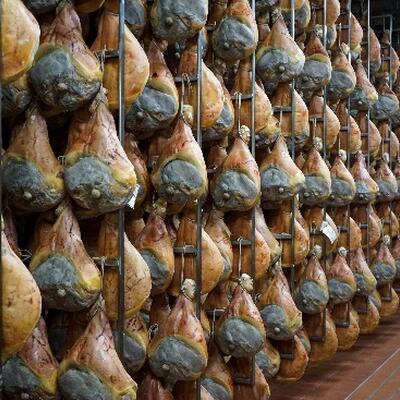
The Nuffield Global Focus Programme started for me in Singapore, where I joined nine other Agri Scholars from across the world. Travelling Asia gave a good flavour of the roles played by each country and the sense of direction between them. Singapore has a bold sense of purpose, as the gateway to trade with Asia is the number one region to do business. Singapore is the second largest commodity Ag hub, after Geneva. The country provides a safe legal framework to trade with the world and network of experience and contacts to create business.
Where in contrast Hong Kong seems more volatile in its current role in the Asian network, which was seen with demonstrations against decisions being made in China. Hong Kong is still an important route for agri trade to China and we met Science institutes who were clear in the importance of robust technical services, which could be trusted by the Chinese agricultural industries.
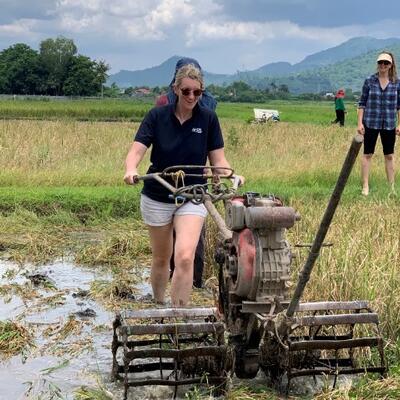
The Philippines is the home of the International Rice Research Institute, IRRI. IRRI’s role in the 1960’s was principally to breed more productive varieties to feed the world. It now focuses on education, innovation and economics and policy. We were taken out to the paddy fields to learn first-hand how they approach this.
China was an incredible experience, arriving in Shanghai to a place I hadn’t imagined. The streets were alive with people and excitement. We walked down beautiful streets that were influenced by European design, although it was very busy which isn’t a surprise with a population of 26 million but there was a real calm, safe feeling around the place.
Our broken bodies just about survived the return from China, with us surviving on a diet consisting of mostly dumplings. At last we arrived in mainland Europe, I arrived perceiving it would be somewhat like home naively thinking I would not learn anything new. I couldn’t have been more wrong! Getting the opportunity to travel with nine others from all over the globe, allowed me to see Europe through their eyes, giving me a fresh unique perspective.
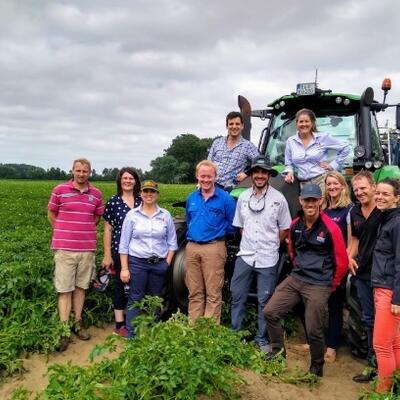
We voyaged from the east to West Germany, visiting farms along the way. Our time in Germany ended as our excursion continued into the Netherlands. I was fascinated by the Dutch approach to land utilisation, and LEAN operation, it was a masterclass of efficiency.
The sails were then set to Ireland, a champion of the potato industry. I was in awe of the overwhelming sense of community and passion they had for their global operations which have produced some great examples of worldwide success. Here I became aware that political uncertainty is a common theme across Europe.
The final leg of my Global Focus Programme took me to America, starting in Washington DC. Before moving down to Texas. We meet with Senators, policy makers and lobbyists and challenged everything we had learnt from watching American TV shows! It’s hard to understand what farming means to such a distant place full of power and money.
I’m sad to come to the end of this experience, but know it’s just the start of the China GFP’s connections with each other, we may not ever all be together in the same place again but we will share in each other’s experiences and future.
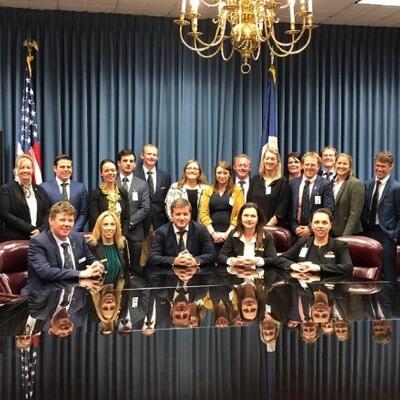
My colleagues and farmers have taken great joy in calling the GFP my ‘2 month holiday’; from the outside, it may appear to have been a whirlwind worldwide adventure, but the six weeks of GFP China has offered me the opportunity to see the world through a lens I didn’t even realise I had.
I found myself inspired by many people along this journey; the rice research team in the Philippines who are combining world-leading innovation with political guidance and advice, the arable farmer in Ireland growing his business with passion and precision, the German farmer diversifying on a large scale yet keeping family at the centre of his business. Each of these people left a mark, they showed me what is possible with the right attitude and inspired me to look inside, figure out what my life can become, drive as hard as I can towards the goals that I create, yet at the same time to remain grounded in reality and to keep what is important close by.
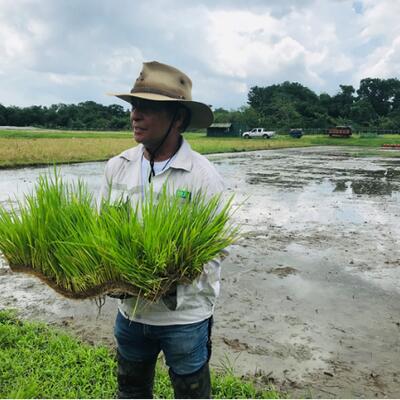
On this GFP we were witness to some of the major questions facing the world’s farming family; within three generations the global agriculture system is shifting from subsistence farms to large scale agribusiness. In China, we saw integrated vegetable farms operating out of hundreds of polytunnels, in Germany a broiler industry with incredible efficiency from farm to the supermarket and in America lobbyists representing huge multinational corporations.
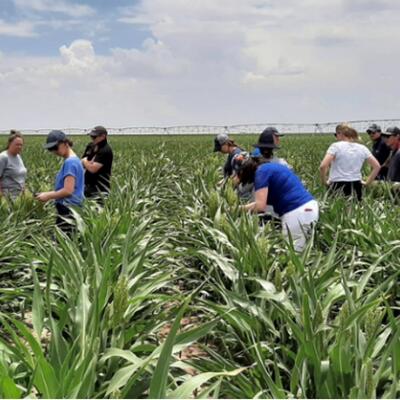
Globally these new businesses represent a tiny fraction of farmers but an ever-increasing slice of the food-producing pie. Add onto this the everpresent US-China trade war and I felt we were facing two possibilities; either open a countries food markets to international competition, drive efficiency through removal of subsidies and decrease the intensity of environmental and welfare regulation, or close the market down, prioritise and artificially elevate ‘home-grown’ produce with strict regulations governing how food is produced. I must admit I switched sides on this debate as many times as we switched countries and that is as telling as anything. As we approach a new UK agricultural policy, what is clear is that these influences must be kept in balance. If our industry is to remain strong and vibrant it must exist within an environment that nourishes it.
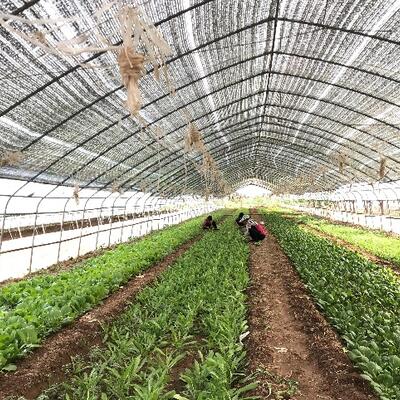
SUMMARY
The GFP is truly a once in a lifetime chance to spend such a concentrated time on personal development, where each day is dedicated to growing your mind, to constantly learning and to opening your eyes to challenging ideas. All four Nuffield scholars would like to thank Nuffield Farming, as well as their individual sponsors, for this amazing opportunity.
